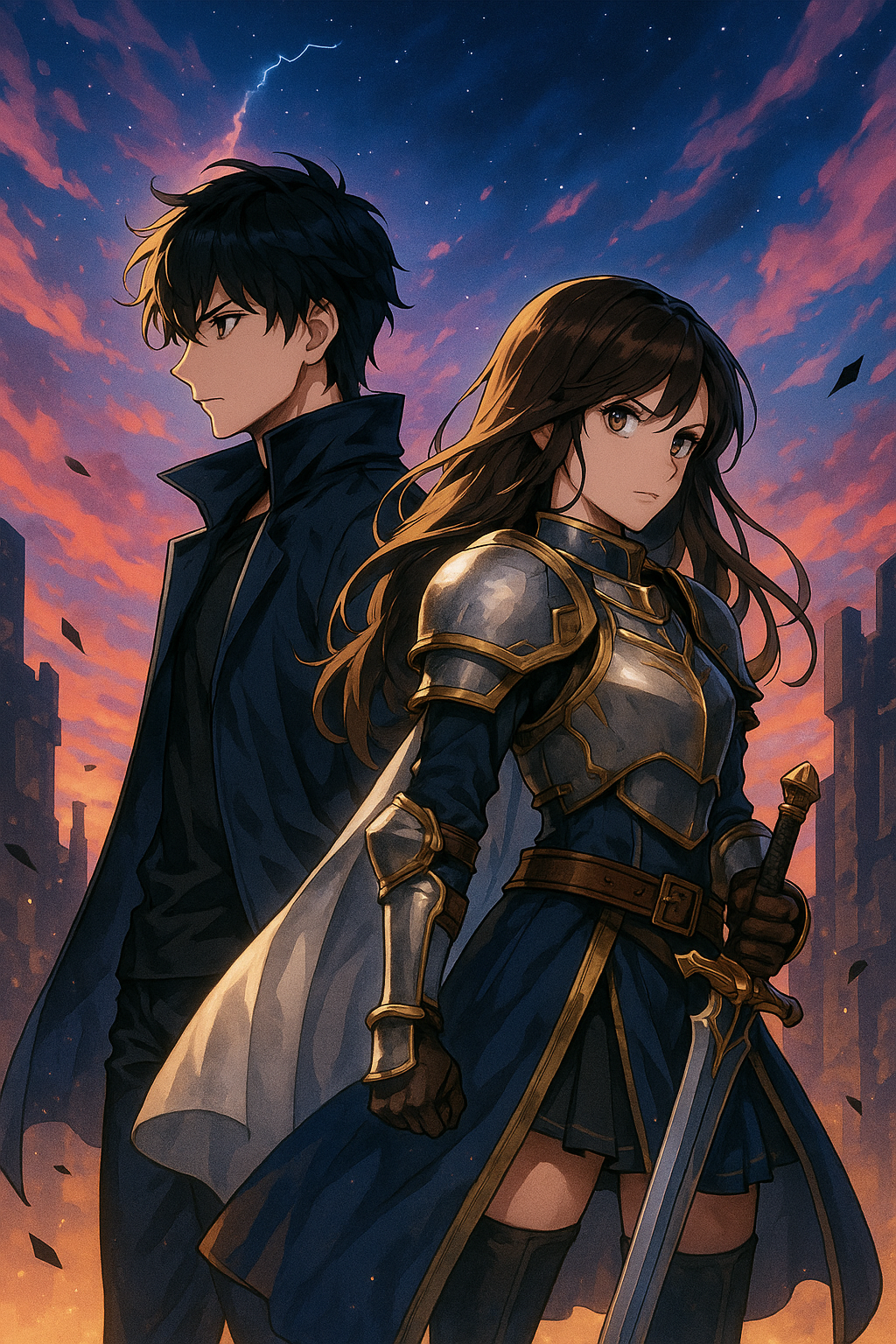Human
"They are not the strongest. Not the oldest. Certainly not the most elegant. And yet they keep turning up in all the important chapters."
Humans are not the most powerful ancestry in the Pattern.
They are merely the most statistically persistent.
They arrive in worlds they don’t understand, build systems they forget how to maintain, and survive collapses they refuse to acknowledge. They have no divine claim, no metaphysical advantage, and no shared cultural script—and yet, like a recurring footnote in a cursed manuscript, they remain.
To call them adaptable is too generous. They are opportunistic in the way moss is opportunistic—present wherever oversight or moisture allows. And yet, for all their inelegance, humans change things. Sometimes with purpose. More often by accident.
Their Threads burn fast, bright, and disconcertingly loud.
The Pattern watches them closely. Not because they are powerful—
But because they might become something inconvenient.
Resonance Profile
Human Threads are volatile. They rarely move in straight lines, and they almost never finish what they started. Despite this—or perhaps because of it—they are capable of staggering narrative impact. It is not uncommon for a Realm to be remade in the wake of a single human’s outburst, poorly worded dream, or romantic entanglement with a weaponised idea.
Their resonance tends to spike early and unpredictably. They do not accrue significance through age or training. They simply act—and the arc, for better or worse, responds.
Some are born anomalies.
Some become them.
A few simply refuse to die until it’s narratively satisfying.
Cultural Variants (Narrative Only)
Humanity does not fracture into subraces. It splinters. Loudly.
Threadwalkers will often recognise broad cultural echoes among humans, even if the humans themselves don’t. The most common patterns include:
- Empire Builders, who conquer as if bureaucracy were a religion
- Survivors, who live because they’ve forgotten how to stop
- Explorers, who press buttons clearly marked “Do Not Press”
- Faithful, who shout until divinity responds out of self-defence
- Mercenaries, who prefer truth in the form of coin or blade
- Decadents, who drink their way through collapse
- Wildcards, who cannot be categorised and should not be encouraged
These are not mechanical divisions. They are flavours. Use them accordingly.
Roleplaying a Human
Humans are best played as reckless optimists, burned idealists, or accidental protagonists. They are short-lived, frequently underqualified, and deeply convinced that they matter.
They rarely hesitate. When they do, it’s already too late. Their strength lies not in preparation, but in momentum—narrative inertia dressed as courage.
They often:
- Start quests with no plan
- Name things that should not be named
- Form cults unintentionally
- Argue with gods out of principle
- Survive by insisting they’re “fine” until they’re not
Humans are not subtle. They are not careful. But they are undeniably effective, if only because they insist on being involved.
Human Ancestry
Your ancestry grants the following traits.
Creature Type: Humanoid
Size: Medium or Small (choose when you create your character)
Speed: 30 feet
Resourceful.
You gain Heroic Inspiration whenever you finish a long rest. This is not confidence—it’s momentum.
Skillful.
You gain proficiency in one skill of your choice. This will likely be used incorrectly, but enthusiastically.
Versatile.
You gain one Origin Feat of your choice. Common choices include Skilled, Tavern Brawler, or whatever you picked without reading the full description. You may select any feat for which you meet the prerequisites. The Pattern will pretend it makes sense.
Language.
You do not track languages. ThreadSpeak applies. The locals understand you. You understand them. Any failures in communication are entirely your own.
Glamour Profile.
In most Threadworlds, humans are interpreted as “locals,” “students,” “mercenaries,” or “that one with the clipboard.” Their glamour rarely hides their presence. It simply assumes everyone else has agreed not to make it awkward.
“Your continued reading is more valuable than coin. However, the author assures me that Ko-Fi support assists in ‘keeping the kettle on.’ I am told this is a metaphor. I remain unconvinced.” — Seraphis Nightvale Ko-Fi: #madmooncrow





Comments